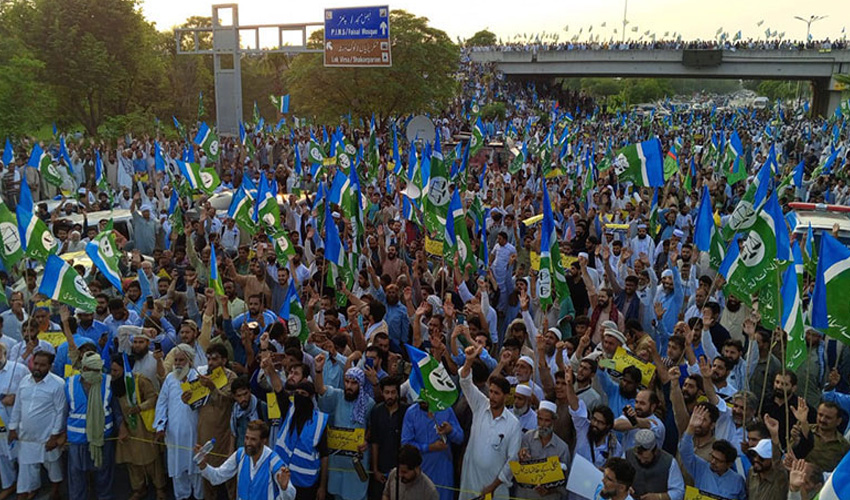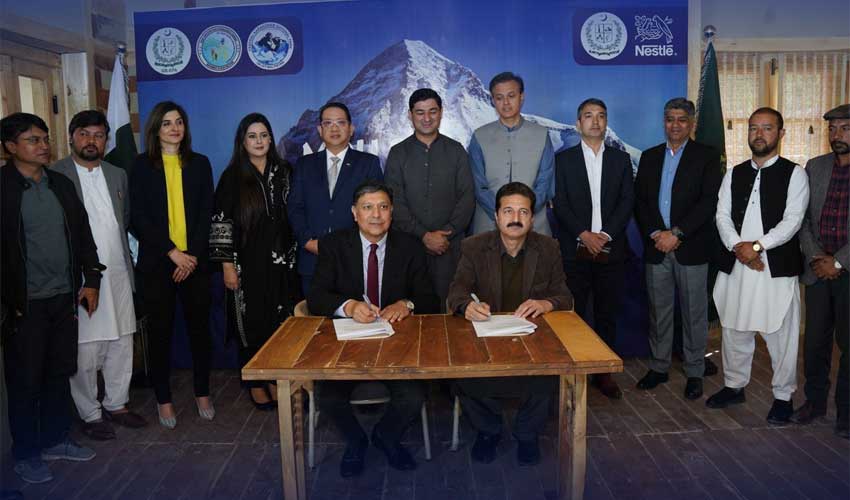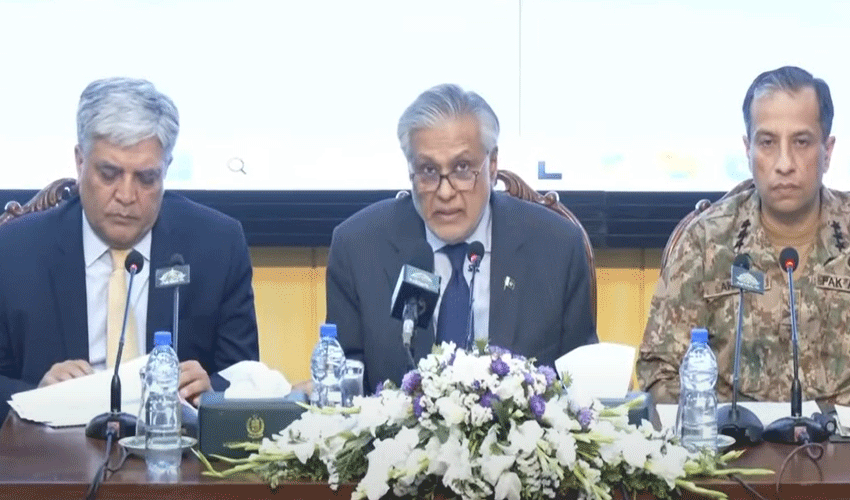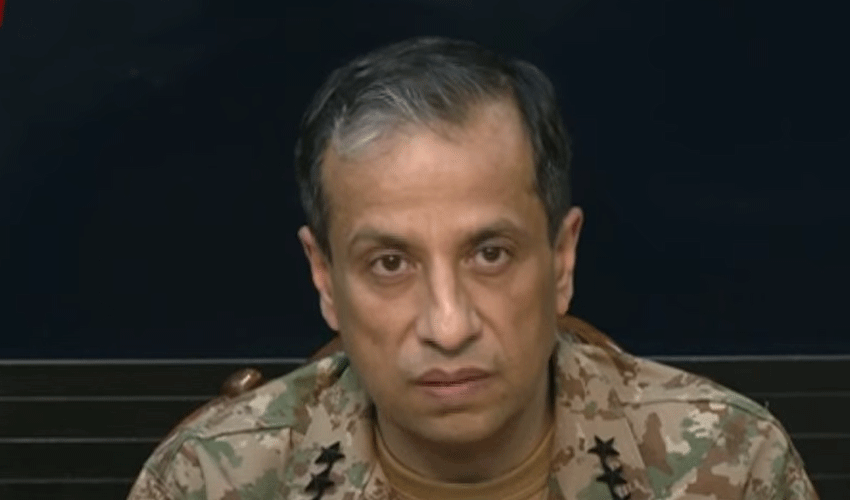The anticipated second round of negotiations between the government and Jamaat-e-Islami failed to commence as planned on Monday, further complicating the ongoing sit-in at Liaquat Bagh Chowk Murree Road.
The stalling of talks came amid heightened tensions and sharp criticism from Jamaat-e-Islami leaders.
The government’s technical committee had convened earlier at the commissioner's office in Rawalpindi to discuss Jamaat-e-Islami’s demands.
However, when the time came for the second round of negotiations, no meeting took place. Security staff at the commissioner's office confirmed that they had not been informed of any scheduled discussions.
Sirajul Haq fires a broadside at PM Shehbaz
Jamaat-e-Islami’s former emir Sirajul Haq addressing the sit-in participants criticised Prime Minister Shehbaz Sharif, urging him not to "wait for dead bodies to fall" and warned that the party would not be intimidated.
"If our workers are mistreated, we are ready to respond in kind," Haq declared, highlighting the party's resolve to continue their protest.
Haq also aimed what he described as widespread corruption among the ruling elite.
"The elites are responsible for our institutions' downfall. If Asif Zardari cannot address corruption, what hope is there?" he asked, citing an incident where a government official was allegedly seen using a government vehicle for personal errands.
The criticism extended to the economic hardships faced by ordinary citizens. Haq pointed out the stark contrast between the opulent lifestyles of officials and the struggles of the average Pakistani.
He also criticized the government's handling of foreign currency and economic policies, comparing Pakistan unfavorably to nations like Norway and Malaysia.
Hafiz Naeem again vows to expand protest if demands ignored
In a parallel development, Hafiz Naeem-ur-Rehman, Ameer of Jamaat-e-Islami, addressed the ongoing sit-in, emphasizing that the protest would not conclude until the government meets their demands.
"This sit-in is not just for Murree Road but for every youth in Pakistan," Rehman stated, marking the fourth day of the protest.
Rehman condemned the government's perceived inaction and reiterated the party's stance on essential issues. He noted that despite having solar systems, electricity bills remain prohibitively high, placing a significant burden on the salaried class. He expressed determination to continue the protest, even if it escalates to a nationwide movement.
The Jamaat-e-Islami leader accused MPs and bureaucrats of enjoying privileges at the expense of ordinary citizens. "While we pay for our fuel and utilities, the bureaucracy and MPs enjoy free services," Rehman said.
He demanded a reduction in electricity prices and criticized the government's failure to provide tangible relief to the people.
Jamaat-e-Islami's demands
The sit-in has drawn a significant number of Jamaat-e-Islami workers who are advocating for a set of ten demands aimed at alleviating the economic burden on the public.
Key among these demands is a 50% reduction in electricity rates for consumers using up to 500 units and a reduction in the prices of essential food items.
Jamaat-e-Islami has formed a negotiation committee led by Liaquat Baloch to engage with the government. The demands also include:
- Immediate withdrawal of the recent hike in petroleum prices and the abolition of the petroleum levy
- A 20% reduction in the prices of essential items
- Elimination of taxes on stationery items
- A 35% cut in non-developmental government expenditure
- Revision of agreements with Independent Power Producers (IPPs) to eliminate capacity charges and payments in dollars
- Abolition of illegal taxes on agriculture and industry, with a 50% reduction in the tax burden
- Promotion of industry, trade, and investment to create employment opportunities for the youth
- Removal of taxes on the salaried class and inclusion of the privileged class in the tax net



























